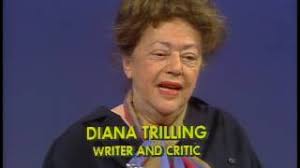2. Janet Malcolm
“It is the avid
people from somewhere else who fan [New York’s] extravagant flame as they scale
its hierarchies of finance, commerce, and art. We indigenes with our
proprietary airs are all very well, but we don’t count in the New York scheme
of things.” -Janet Malcolm
I moved to New
York in 2004, understanding already that the city was far removed from its best
years. I was happy to inhabit a diminished version of New York, though, one in
which the Bloombergian revolution was well underway—in fact, had been underway
since Koch struck his devil’s deal with real estate interests—but had not yet
consumed the city in an irreversible suburban sameness. I enjoyed my early
years in the city, despite living in a relatively remote section of Queens and
suffering through a bad marriage. I went to see experimental jazz shows at The
Stone, ate Korean BBQ on West 32nd Street, wandered the streets of
different neighborhoods, trying to isolate and define for myself their specific
qualities. But I understood quite clearly that the city’s anarchic spirit had
already been tamed, a state of affairs I frequently heard lamented by New
Yorkers who had been there far longer than I had.
As I soon learned,
this native/newcomer divide is often fraught. This is, after all, a town where vast
numbers of people come from somewhere else, but where it is always important to
be seen as belonging, to present as a real
New Yorker. The transplant constantly suffers from a nagging sense that he
doesn’t truly fit in, that no matter how well he knows the city, how strongly
he’s mastered its unspoken customs, he will never measure up to the New York-ness
exhibited by what Janet Malcom calls, in a pointedly antiquated phrase, the
“indigene.”
And, yet, it is often
these ambitious newcomers that come to define the city’s landscape, for good or,
more frequently, for less good. I can’t even imagine the bewilderment that must
be felt by people who’ve lived in New York for the better part of a century,
such as Malcolm and the subjects of the 2014 profile from which the above quote
is taken, the elderly “three sisters” who own the legendary Argosy bookstore,
at what the city has become. Even since 2004, I’ve noticed an essential change
in the character of incoming New Yorkers, for whom the long-standing ways of
the city “don’t count in the… scheme of things,” just as old-timers like
Malcolm and her subjects do not. For these people, it seems, there is not the
same anxiety about whether or not they can adapt to the city. Instead, as they
isolate themselves in their luxury buildings, order whatever they need via
Seamless and Task Rabbit, and take Ubers everywhere, it is the city that must
adjust to them.
In 2018, having had
enough, I decamped upstate. I was quickly hit with a nasty surprise when I
discovered that Hudson, NY, where I moved, is the favored weekend destination
for exactly the sort of New Yorker that I hoped to escape. (That is my fault; I
failed to do the proper research.) But, despite this realization, I’m happy to
be here. And what I’m happiest about, when I really think about it, is that I
don’t have to ride the subway, that I don’t have to constantly negotiate crowds
of people, and that I have significantly more living space. In the words of a
pair of novelty socks my wife bought for me at a local bookstore, “I fucking
love it out here.” All of which leads me to wonder: Was what I was escaping the
“new” New York, with its diminished possibilities and increasing conformity, or
was it, in fact, the city full stop, the massive metropolis that’s always
existed and that, in my creeping middle age, I no longer have the patience or
desire to navigate?



Comments
Post a Comment